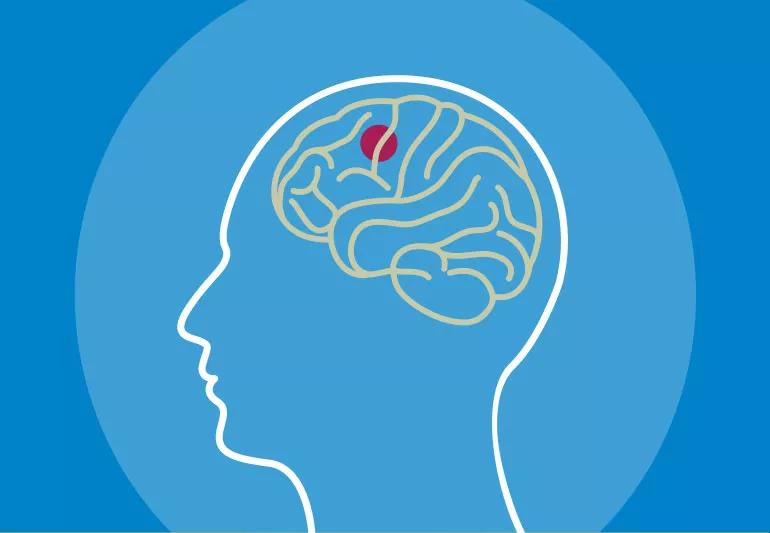Researchers are testing a new immunotherapy for brain cancer

Image content: This image is available to view online.
View image online (https://assets.clevelandclinic.org/transform/05d10b47-79dc-4146-8387-9485d2d7dc6d/brainTumorMeds-841768850-770x553_jpg)
Illustration of glioblastoma in brain
Glioblastoma is the most aggressive form of brain cancer; the average person lives just 15 months after being diagnosed with it.
Advertisement
Cleveland Clinic is a non-profit academic medical center. Advertising on our site helps support our mission. We do not endorse non-Cleveland Clinic products or services. Policy
“Despite improvements in surgery, medical therapies and radiation, outcomes from treatment of glioblastoma still remain dismal,” says neuro-oncologist Manmeet Ahluwalia, MD, Director of the Brain Metastasis Research Program at Cleveland Clinic.
Dr. Ahluwalia is helping lead a clinical trial of a new glioblastoma treatment called SurVaxM. It’s an immunotherapy for brain cancer that works by stimulating a person’s own body to kill tumor cells that contain survivin, a protein that helps those cancer cells resist traditional treatments.
So far, the results are encouraging. Nearly 97% of the 63 patients in the phase 2 clinical trial did not experience tumor progression in the six months following treatment with the vaccine after surgery, chemotherapy and radiation.
Patients are also seeing better overall survival one year after diagnosis with the vaccine than with traditional treatment, Dr. Ahluwalia says.
Next up, the treatment will be tested in a randomized trial in patients newly diagnosed with glioblastoma. “We are eager to see if this vaccine shows similar results in a randomized trial,” he says.
Video content: This video is available to watch online.
View video online (https://cdnapisec.kaltura.com/p/2207941/sp/220794100/playManifest/entryId/1_k6ry7yuz/flavorId/1_5f3sgelj/format/url/protocol/https/a.mp4)
Advertisement

Sign up for our Health Essentials emails for expert guidance on nutrition, fitness, sleep, skin care and more.
Learn more about our editorial process.
Advertisement
Rest assured: Most headaches are not caused by brain tumors
Receiving this diagnosis can be scary, but there are ways to manage symptoms and reduce stress
Your kidneys don’t necessarily need a special cleanse, but they could benefit from some TLC
If you grind your teeth at night, a mouthguard might help relieve jaw discomfort
Protect your teeth and ease strain with a nightguard, better sleep habits and other changes
A variety of stressors can leave you with bald patches or thinning hair
Recovery takes about 12 weeks, but you’ll likely feel a lot better by six weeks after surgery
Follow a balanced diet, get lots of rest, stay hydrated, tend to your mental health — and don’t skip your appointments
Prioritize your health by managing stress, strengthening your social connections and getting quality sleep
Bolsters, blankets, pillows and blocks can offer extra support, stability and comfort
Allergies, postnasal drip, asthma or reflux could be to blame for a cough that won’t quit